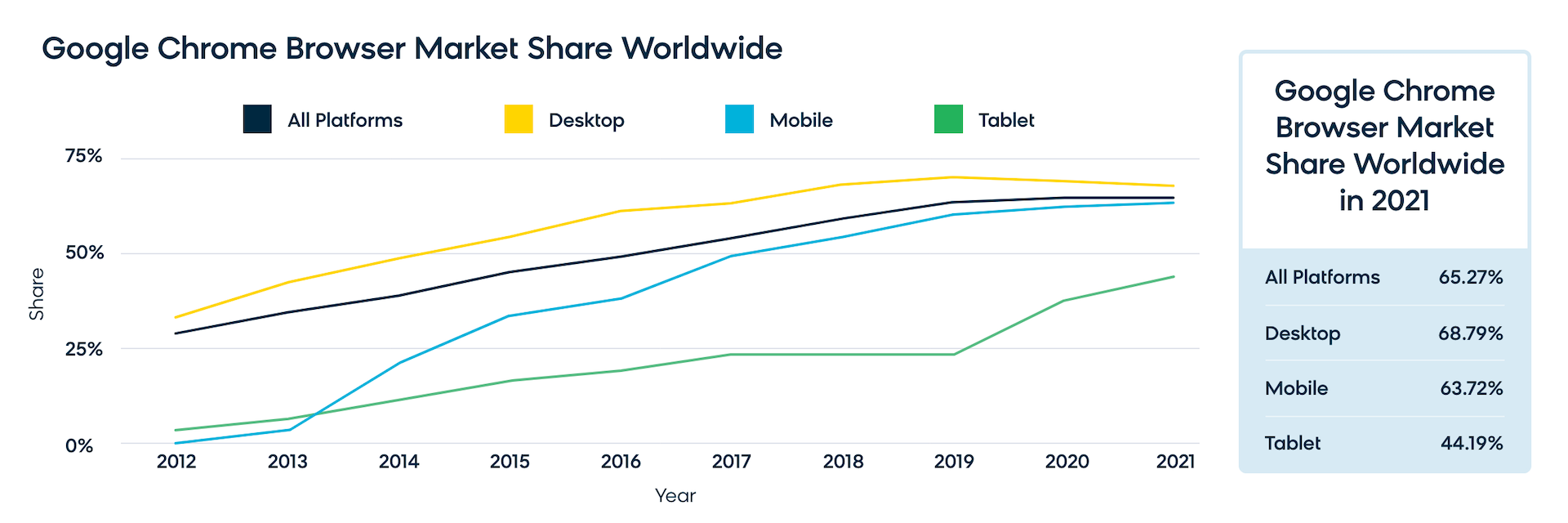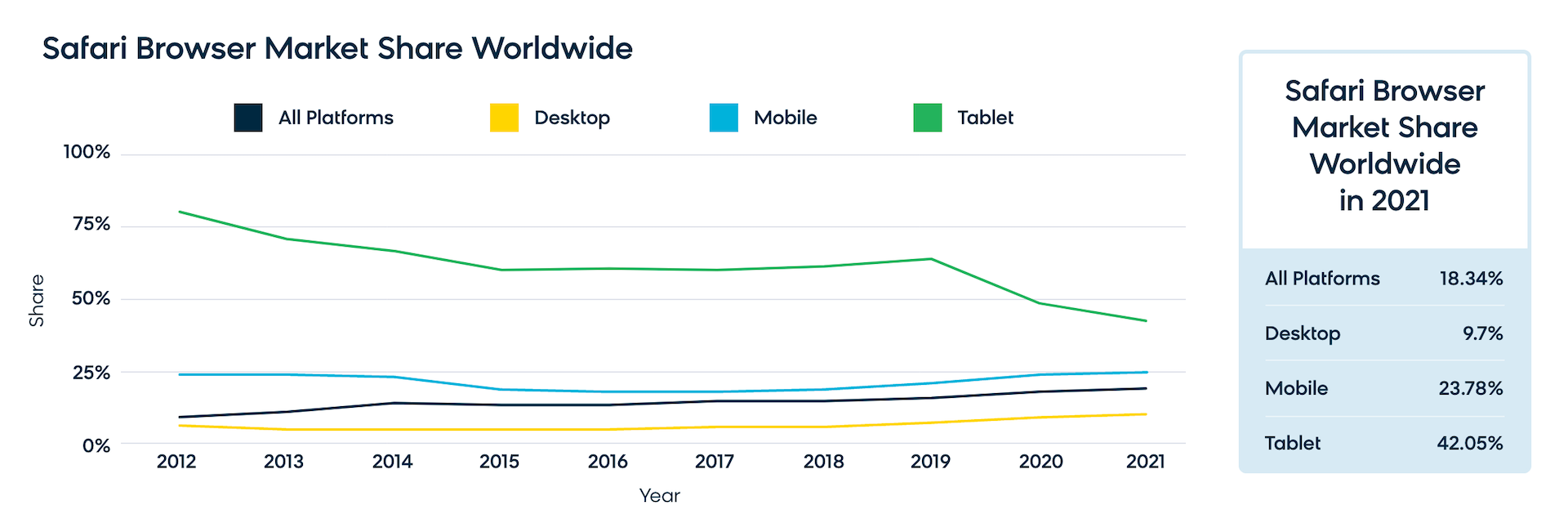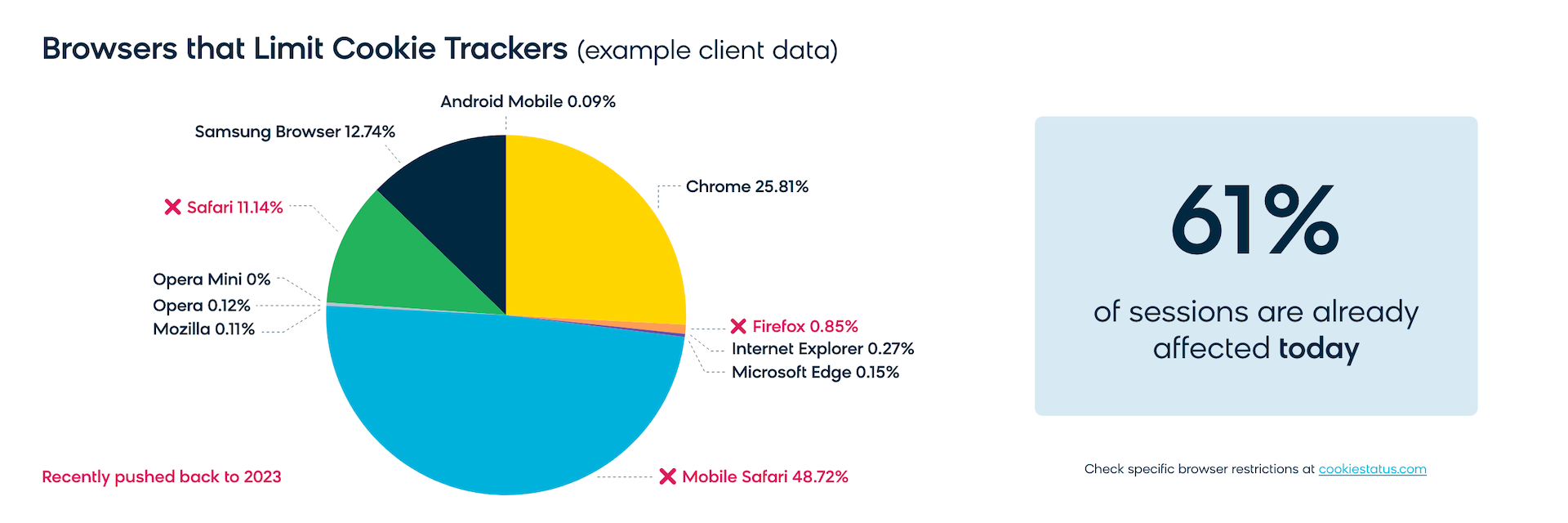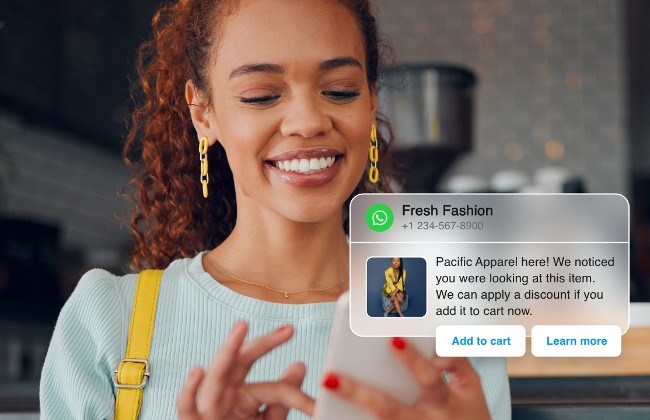Google’s Privacy Sandbox Punt Shouldn’t Slow Your Cookieless Preparations
By Carl Bleich
08/06/2021

Earlier this summer, Google sent shockwaves through the digital marketing world by announcing that it would not phase out third-party cookies beginning in 2022 as it previously planned to.
Safari’s Intelligent Tracking Prevention (ITP) and Firefox’s Enhanced Tracking Protection (ETP) have already stopped supporting third-party tracking and third-party cookies. Google’s Privacy Sandbox was initially scheduled to stop supporting the privacy-invasive third-party cookies beginning in January 2022 to be in alignment with Apple and Mozilla.
Now, Google Chrome is expected to phase out third-party tracking in two stages that will not be complete until late 2023, nearly two years after it initially intended to.
If Google was playing American football, it just opted to punt the ball and put its defense on the field until late 2023. Google is buying time after it “became clear that more time is needed across the ecosystem to get this right”.
Why Google Punted
Google’s “ecosystem” is an interesting one and can help us understand why it punted its phase out.
Google has multiple irons in the fire — it operates both a browser and an online advertising platform— and has business relationships with tens of thousands of businesses across the globe. If Google Chrome (the browser) stops supporting third-party cookies, Google Ads (the online advertising platform) likely suffers.
Not only does Google Ads likely suffer, the companies who rely on Google Ads will suffer as well. In 2019, there were over two million accounts on Google Ads and in 2020, Google was the biggest provider of search advertising on the market.
The delay certainly buys Google time to figure things out but also buys a large amount of businesses around the world time to make more long-term plans regarding the eventual loss of third-party cookies.
While companies like Bloomreach customer musicMagpie have already begun to prepare for the new privacy-centric web, many companies are still in the process of figuring out their plan for changes to third-party tracking. The postponement will allow many businesses to continue relying on third-party tracking through Google Chrome for important marketing strategies like retargeting while brainstorming what is best for the future.
But, if you are a company like musicMagpie that has already begun extensive work on your cookieless future...
The Time for Cookieless Efforts is Now
This feels a bit like being back in grade school and working on a semester-long project that is very impactful for your class grade. You spend a great deal of time planning and working on the project, only to have your teacher postpone the due date a few days before it was due.
Frustrating? Perhaps. Is all of the work you did on your project for nothing? Absolutely not.
Like the school project example, efforts to make your company’s marketing strategy privacy-centric are not in vain. You have not wasted your time figuring out how to stop relying on third-party cookies and third-party tracking despite Google’s surprising announcement.
Online data privacy concerns are on the rise amongst consumers and fines for failing to comply with data privacy laws and regulations have skyrocketed as well. Those two facts alone are reason enough to examine the care your company’s marketers are taking with collected customer data.
It’s also important to understand the market share that Google Chrome has amongst browsers. According to compiled data, it is far and away the most used browser worldwide.

But it is not necessarily the runaway winner on every type of device. Safari, which does not support third-party tracking, is beginning to challenge Chrome on mobile devices and has nearly overtaken Chrome on tablets.

It will be interesting to monitor these numbers moving forward to see if they adjust at all based on Safari’s decision to stop supporting third-party tracking and Google’s decision to continue supporting third-party cookies until late 2023.
How Customers Are Accessing Your Website
One of the most important reports your business can have in helping to plan for a privacy-centric future is knowing how your customers are accessing your ecommerce site. This is particularly important over the next 2+ years as different browsers will support different capabilities with third-party tracking.
Below is a snapshot of the browser share breakdown of an unnamed Bloomreach customer. It does not match the overarching data.

Approximately 61% of sessions are already affected by the changes to third-party tracking. If this company, or any company with a percentage of sessions even close to this number, did not have a plan in place for the loss of third-party cookies, it would see significant changes in its ad reporting and in other key areas.
A direct side effect of this would be losing connections with returning customers because of the browser’s inability to recognize repeat visitors. This would also eventually negatively impact a company’s bottom line and cause a loss of revenue as well.
Bloomreach Engagement Provides a Proven Cookieless Solution
Bloomreach Engagement is the solution needed to combat changes to third-party tracking and third-party cookies.
Our CDP + marketing automation solution will allow you to unify all of your customer data and deliver connected customer experiences all with a single solution. Most importantly in this situation, it allows for users to have outstanding data hygiene.
Your company’s data hygiene is of the utmost importance in 2021. Maintaining data quality in a cookieless world and reconstructing that picture of the customer again is crucial to continued success.
The CDXP helps with this in two ways: server-side data ingestion and server-side conversion tracking.
With the combination of Tracking API and front-end tracking, Bloomreach can ingest additional clean data from your back-end so that data can be used in an actionable way for connecting with consumers.
Server-side conversion tracking exists primarily to enable sending of conversions via back-end to strengthen the conversion signal to optimize your campaigns and give you a clear idea of campaign performance.
Server-side conversion tracking also gives your company complete control over the conversion data shared with ad networks such as Facebook, Google, or a different affiliate partner. It will help ensure that your campaign performances remain consistent.
If you’re looking to begin or continue your preparation for the changes to third-party tracking, Bloomreach has you covered:
- Take our quiz to determine how reliant you are on third-party cookies and learn how ready your company is for a cookieless world
- Our 3 Key Strategies to Win in a Cookieless World knowledge card will help you future-proof your marketing strategy to connect with your customers without third-party cookies
- The Impact of Cookie Limitations Q&A features our experts’ answers on tough questions about the changes to third-party tracking
- The Personalization in a Post-Cookie World blog post covers an introduction to browser changes and what the future of personalization looks like
As third-party cookies crumble, Bloomreach is the partner you need in your corner helping to find a solution that is tailored to your company. Schedule a personalized demo today to see Bloomreach Engagement in action to learn more.
Don’t let Google pushing back its phase out of third-party cookies be the reason you de-prioritize your privacy incentives. The impact on customer loyalty is too great to ignore and the long-term value of respecting your customers’ privacy will always be there.
*Graph images are sourced from: https://backlinko.com/browser-market-share#worldwide-browser-share
Found this useful? Subscribe to our newsletter or share it.






